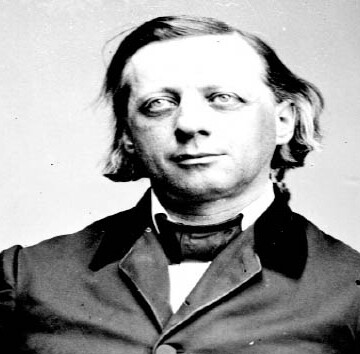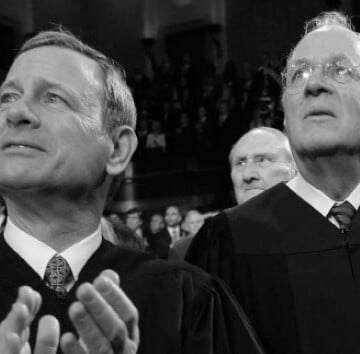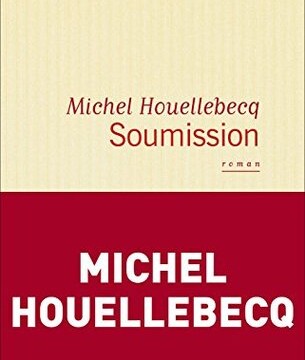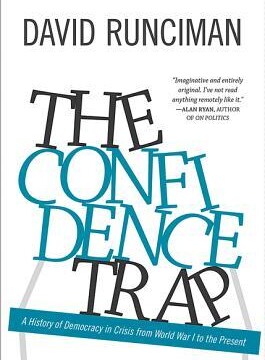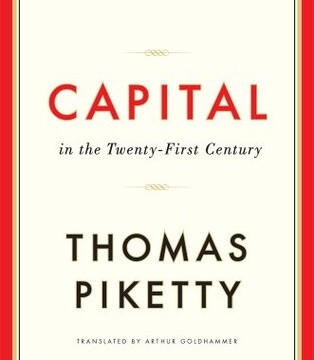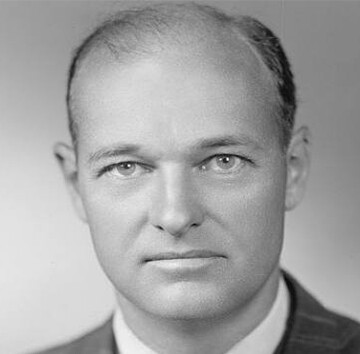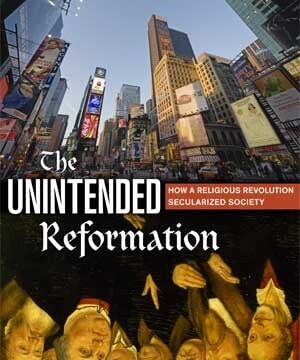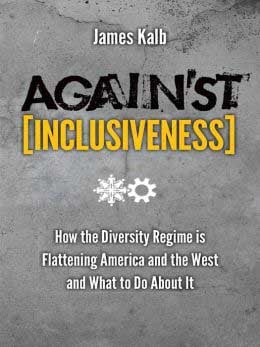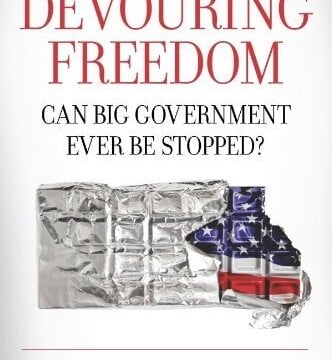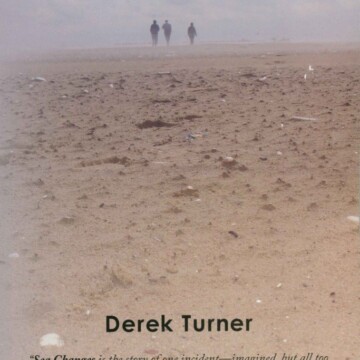Jean Raspail, the French novelist and explorer, now 90 and living in a suburb of Paris, must be experiencing the eerie feeling of living inside The Camp of the Saints, his most famous work, as he follows the contemporary news reports from across the Continent. The tens of thousands of Third World migrants are arriving...
Author: Chilton Williamson (Chilton Williamson)
Exceptional America
Tocqueville was the first author to apply the adjective exceptional to America, but the compliment—if he meant it as a compliment—was a backhanded one, referring narrowly to circumstances that “concurred to fix the mind of the American upon purely practical pursuits.” Certainly, he had nothing in mind comparable to the notion of “American exceptionalism” that...
The Union as It Was
A minority on the left is possibly willing to admit that a few “good Southerners” during the War Between the States opposed slavery, secession, and the Confederacy. Probably a much smaller minority would concede that a considerable number of Northerners opposed the war either to preserve the Union or to free the slaves. That, in...
What the Editors Are Reading
In my youth I must have read nearly every word H.L. Mencken wrote—The American Language excepted, though I did dip into it from time to time before setting the book aside as being dry as the Sahara. A couple of weeks ago I ran into almost the entire set (the successive Supplements and Editions) at...
The Future of Europe
When the king of Poland, Jan Sobieski, defeated the Ottoman army at the Siege of Vienna in 1683, that army of 23,000 soldiers did not have scores or hundreds of thousands of hungry and desperate civilians at its back, hoping to find a new life in Europe. The Ottomans were attempting a military invasion of...
Kennedy v. Kennedy
On the last day of August, Judge Richard J. Leon of the U.S. District Court for the District of Columbia found for March for Life in its suit against the Department of Health and Human Services, among other agencies. March for Life is a secular, nonprofit organization, founded after Roe v. Wade, that opposes abortion...
Humanity Lite
Since the 60’s, liberals have been talking about “victimless crimes,” offenses that are prosecutable by law but that liberals claim “hurt no one.” Prominent among these were homosexual encounters, which over the next several decades were decriminalized by most states and eventually recognized by the U.S. Supreme Court as acts of love, and finally conjugal...
¡Buena Suerte, Migra!
Ann Coulter credits Peter Brimelow’s famous essay published in National Review in 1992 with delivering the blinding revelation that opened her eyes to the social and political crisis precipitated by the Establishment’s immigration policies since 1965. Having been rudely knocked off her horse, Miss Coulter has been hurling thunderbolts of her own all the way...
“Home”-Grown
Muhammad Youssef Abdulazeez, who shot five American military personnel to death at the Armed Forces Career Center in Chattanooga on July 16 and was subsequently killed in a firefight with the police, became a naturalized American citizen while still a minor, seven years after his parents immigrated to the United States in 1996. According to...
Church and State
The strongest parts of Laudato Si’, the latest papal encyclical, are the first sections of Chapter Three, “The Human Roots of the Ecological Crisis,” where Pope Francis addresses the quest for limitless power that has been the dominant ambition of the Western world since the Renaissance: power over nature, and—since, as he points out, humanity...
Two Flags
From the welter of democratic hysteria, illogic, historical ignorance, and political self-positioning and posturing, the eminently sensible remark by Tate Reeves, lieutenant governor of Mississippi, regarding the public display of the Confederate Battle Flag stands like a stone wall above the general confusion. “Flags and emblems,” Mr. Reeves said, “are chosen by a group of...
The Wellesley Zarathustra
“Laws [concerning ‘reproductive health’] have to be backed up with resources and political will and deep-seated cultural codes, religious beliefs, and structural biases have to be changed.” Thus spake Zarathustra at the Women in the World Summit in New York City last April, an annual celebration of the Transvaluation of All Values. “Religious beliefs ....
Beyond “Immigration”
The United States has Mexico, and below her Central America, south of the border. In ¡Adios, America!, Ann Coulter claims that 30 percent of the Mexican population, today over 122 million people, has moved to the United States within the past several decades. Directly south of the European Continent lies the continent of Africa, population...
Reversion to Balance
The decline of once great powers, real and perceived, is a major theme of the early 21st century that is likely to become more pronounced as the century progresses and the balance of power, propelled by the shifting balance of energy and influence, shifts from West to East. On the eve of World War II,...
Nothing to Regret
Michel Houellebecq is one of France’s best regarded novelists, nonfiction writers, and essayists. His latest novel, Soumission (Submission), appearing some months after the publication of Éric Zemmour’s Le suicide français, in the same month as the murders at Charlie Hebdo, and following a series of killings of Jews by Muslims in several French cities and...
Hating
Liberals love psychology, as a science and as pseudoscience, while being very bad at it. Indeed, the liberal persuasion and the discipline of psychology have a natural affinity for each other, grounded in their morally relativistic values, that partly accounts for their taste for social and personal engineering and other forms of “behavior modification.” Ideologically,...
The Last Fall of France
No one excels at polemics as the French do, save for the English at certain periods of their history (the 17th and 18th centuries, for example), and Le suicide français is a masterly specimen of the genre by Éric Zemmour, the author of many books of fiction and nonfiction and a columnist for Le Figaro. ...
Quoth the Raven
For the past six months the United States has been experiencing another of the racial fits that have recurred more or less regularly across the half-century since the civil-rights protests of the 1950’s and the Civil Rights Acts of the 60’s that abolished legally sanctioned segregation in this country. In this spasm, as in past...
The Way of All Flesh
The Confidence Trap is a book that, in spite of its many penetrating insights, peripheral as well as central to its thesis, on further examination is less striking and original than it promised to be. Runciman begins with an introductory chapter about Alexis de Tocqueville’s early contribution to understanding how democratic nations cope with crises...
The Revenge of the Confederacy
The American political divide is no longer between Republicans and Democrats, conservatives and liberals, religionists and secularists. It is between roughly two halves of the country, each of which would be perfectly happy to see the other wiped, by violence if necessary, from the face of the earth. That was not how the North and...
4.0 and You’re Out!
When I was a junior at the Trinity School in New York, Mr. Clarence Bruner-Smith, head of the Upper School, assured me that I had an excellent chance of being accepted at Yale if I accepted the editorship of the school literary magazine. I thought that a ridiculous reason to be accepted anywhere, and that...
The Meaning of Decadence
When people speak of a society being “decadent,” they commonly understand decadence in terms of standards of personal behavior and the sense of morality, or want of it, that behavior expresses. For conservatives, personal morality begins with sexual morality grounded in revealed religion; for liberals, with what they call an “ethical” approach to human relations...
The Big Inequality
Readers who have been following the often-heated debate on Capital in the Twenty-First Century are likely to be astonished by the mildness of the author’s tone, and by his relaxed rhetorical manner. Indeed, Professor Piketty’s book owes nothing to its famous namesake beyond its title, as well as, more substantially, its grounding assumption that economics...
The Silence of the Gila
The mystery of brightness is more profound than the mystery of darkness, and that of stillness perhaps the most profound of all. In the noontime glare the heart of the Gila wilderness in southwestern New Mexico is both bright and still, the sole sound the drone of a circling horsefly, the only breath the imperceptible...
Carry On
The modern world abounds in modern heresies. One might say that modernity itself is a heresy—modernity understood in the broadest possible terms as the antithesis of the traditional: the fundamental distinction, as Claude Polin recently argued in this magazine, overlying all subordinate political and cultural oppositions, beginning with liberalism and conservatism, right and left. Modern...
Mr. Kennan’s America
No admirer of George F. Kennan’s should be surprised by the angry tone of the reviews his recently published Diaries has been receiving. Of the several I have read, in the British as well as the American press, all were, to some extent or another, willfully unsympathetic. That is only to have been expected, Kennan...
The Long March Through the Constitution
In the opinion of Marshall DeRosa, one of the contributors to this book, The transition from states’ rights to unitary nationalism, i.e., domestic imperialism, was the most significant development in American politics. This marks one of the worst fears of the framers coming to fruition, tyranny. That is a self-evidently correct judgment. It is also...
Digital Enthusiasm
At a recent dinner party someone remarked that the two secure careers remaining in America are business and science. There are also education and academia, but since both have been for several decades now radically inhospitable to anyone to the right of Howard Dean, no one thought it necessary to mention them. I thought at...
Botched Efforts
Judged on their own terms and with respect to the objectives of their own leading protagonists, medieval Christendom failed, the Reformation failed, confessionalized Europe failed, and Western modernity failed, but each in different ways and with different consequences, and each in ways that continue to remain important to the present. That is the author’s tactful...
Russia’s Way Back
Liberalism’s Glorious Age of parliamentary democracy, nation building and national consolidation, free trade, and empire, of which Great Britain was the chief power and paramount symbol, reached a catastrophic close in 1914. After 1945, liberalism in renovated form attempted to launch a modern Glorious Age dominated by the Pax Americana and the United Nations and...
The World Goes Its Way
A French writer argues that “humanity” has become the accepted “version of the universal” in contemporary Western thought, functioning as the “action” of modern democratic polity. While Pierre Manent’s thesis is a convincing one, political and social occurrences in the past decade seem to indicate that the West’s humanitarian “version” is becoming discredited at an...
The Way of Perfection
Paradoxically, Westerners of every faith and political opinion seem perennially unhappy with Western society, despite the West’s assurance that it is the best, most fair, most free, most enlightened, and most humane way of life in human history. The left faults Western institutions because they seem to it insufficiently fair and progressive, too much influenced...
Suicide of the West (Reconsidered)
The elegant duplex maisonette at 73 East 73rd Street in Manhattan, formerly the residence of the late Mr. and Mrs. William F. Buckley, Jr., was recently bought by Mr. and Mrs. Mark Rockefeller, son and daughter-in-law of the late Gov. Nelson Rockefeller. A writer for the New York Times, describing the architectural and decorative renovations...
The Pathology of Postmodernity
“[W]e may expect,” Sigmund Freud wrote in Civilization and Its Discontents, first published in 1930, “that one day someone will venture upon . . . research into the pathology of civilized communities.” This statement directly follows Freud’s suggestion that, if it is true that the evolution of a civilization proceeds similarly to that of an...
Tyranny in Our Time
There is a saying among jurists that hard cases make bad law. Similarly, every book critic knows that the best books make for hard reviewing. Faced with a truly fine work, the reviewer is tempted simply to reproduce the author’s thesis in abbreviation, while scattering as many of the most quotable sentences as space allows. ...
One Big Thing
This book’s heart is in the right place, but its head needs, as they say, to wrap itself around that heart. Devouring Freedom is substantially a useful history of the spending wars between America’s two main political parties since 1932, culminating in the years since 2009 when Barack Obama became president of the United States. ...
The Pope, the “Poor”, and the World
A reader not of the Faith who happened, since the installation of Pope Francis, to glance through almost any issue of L’Osservatore Romano, Vatican City’s official newspaper, might well conclude that the conclave that met in the Sistine Chapel last spring elected a social worker instead of a cardinal as the successor to Benedict XVI. ...
The Importance of Being Mean
The three pillars of liberal morality are engagement, compassion, and inclusiveness; its corresponding demons apathy, hatred, and exclusiveness. The shorthand word for the three cardinal virtues is niceness; for the three supreme vices, meanness. Nice is a word familiar among middle-middle class Americans, who have been liberalized whether they know it or not: the sort...
The Solipsistic State
The New York Times’ headline for Thursday, July 4, 2013, printed above a nearly page-wide photograph showing a spectacular eruption of fireworks in the nighttime sky above Cairo, read Egypt Army Ousts Morsi, Suspends Charter. Almost an earth’s half-turn apart, Egypt celebrated the downfall of her year-old “democracy,” while the United States of America memorialized...
Living the Good Life
Many generations ago, when our country was very new in the political sense but very old still in respect of its general culture, many educated men and women kept what were in those days called commonplace books, mainly a compendium of quotations gleaned from their quotidian reading. The practice lapsed a century and a half...
Too Much is Never Enough
Researchers report significantly increased rates of suicide among U.S. military personnel, college students, and baby boomers. Until now, suicide was most prevalent among teenagers and elderly persons. Journalists have suggested a number of explanations for the phenomenon, among the more plausible of them the structural collapse of the American family in which troubled, lonely, and...
The Era of Our Discontent
In scientific culture, every subject is accepted as a legitimate one for quantifiable study, including subjects no wise man would venture to approach in such a manner. Hence academic researchers, boldly rushing in where mystics and poets fear to tread, feel encouraged to establish themselves as experts in matters to which the concept of expertise...
Mal de Mer
This novel inevitably invites comparison with Jean Raspail’s The Camp of the Saints (1973), published in France, as the English equivalent of Raspail’s famous book. The comparison is apt, so far as subject and politics go. But that, really, is the end of it. The Camp of the Saints describes the invasion of southern France...
The Hind and the Panther
No one expects to discover in a drug dealer the character of Johnny Appleseed or Santa Claus, overflowing with compassion and the milk of human kindness, scattering sweetness and light wherever he goes. On the other hand, I suspect even the most hardened undercover cop in his local antidrug unit would be shocked to witness...
Die Industrie
The title of the most famous book published in the 19th century is in fact a misnomer. Das Kapital should really be Die Industrie. It is true that in Volume One, Chapter 1, Karl Marx begins with a discussion of money as having originated not as capital but simply as a means of exchange. Money,...
Democracy and the Golden Mean
A naive visitor arriving in the United States from abroad might conclude from the popular emphasis on “moderation” in contemporary American political discourse that Americans live under a government that represents a moderate theory of the appropriate scope and power of the state and harbors only modest political ambitions. If he happens to be a...
Sentimental Democracy
Several months ago I spoke briefly at the Baltimore Bar Library against passage of the Maryland Dream Act, the state version of the federal initiative that has been hanging around the capitol for a dozen years now. My remarks were countered by two supporters of the act, a pair of earnest young men: both Catholic,...
Shadow of a Shade
The cover of this book describes the late Joseph Sobran as “one of the greatest essayists of the twentieth century” and notes that he has often been compared with G.K. Chesterton and H.L. Mencken. As a lifelong admirer of Mencken and his work, I must say that I find the comparison an unfair one—unfair to...
The Primacy of Privacy
People forget, in an age of promotion, self-promotion, publicity, advertising, the internet, and social media, that personal privacy is essential not only to civility but to civilization. Today, as never before in history, the maintenance of privacy depends on the moral fortitude to resist intrusion by others and the self-restraint and tact not to intrude...
Beyond National Socialism
Over drinks in the hotel lounge in the course of a scholarly meeting a year or so ago, I mentioned to a professor of political science and philosophy that I was writing a book on democracy. “Can you give me an example of democracy in its perfect, most complete form?” he asked. “National socialism,” I...
